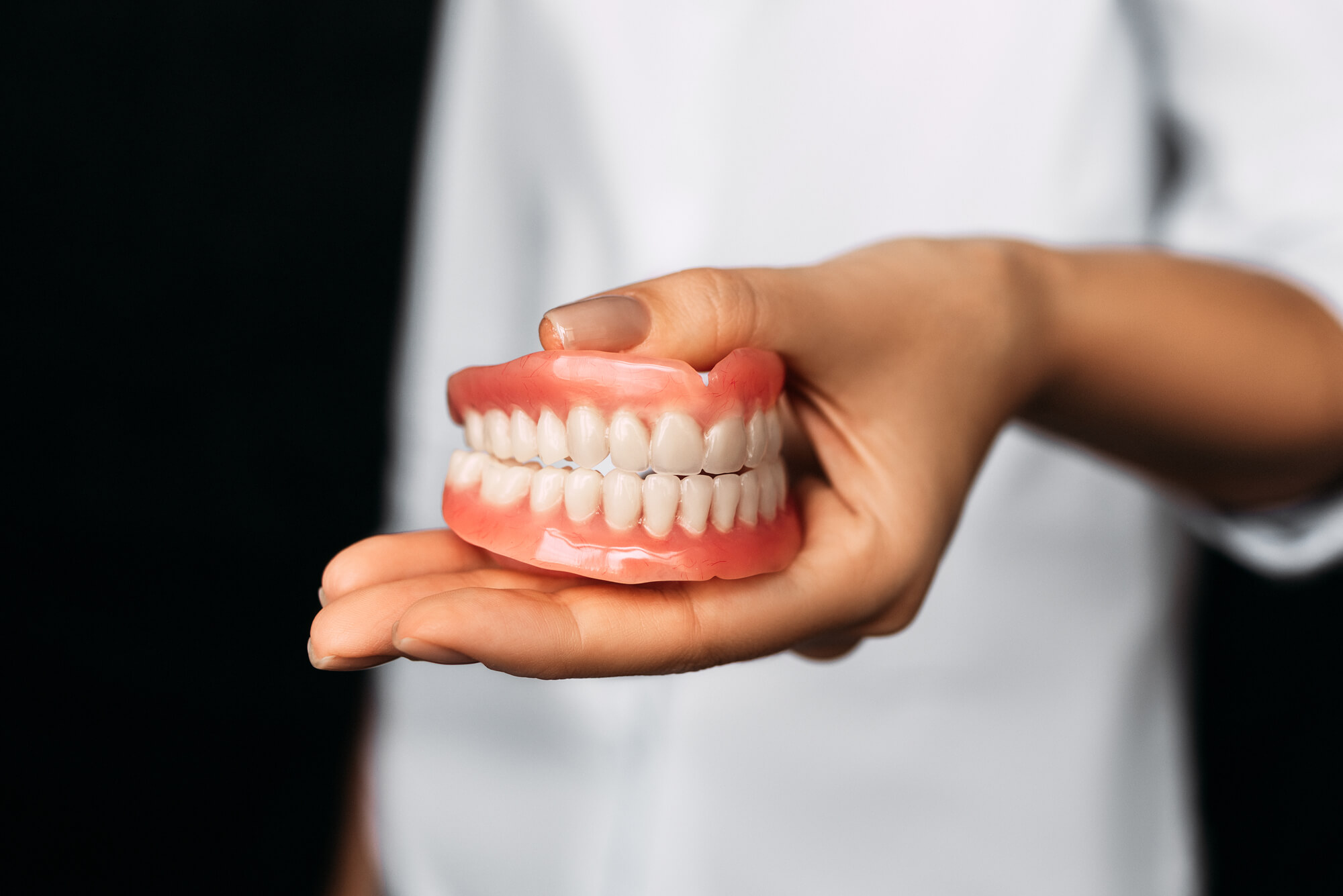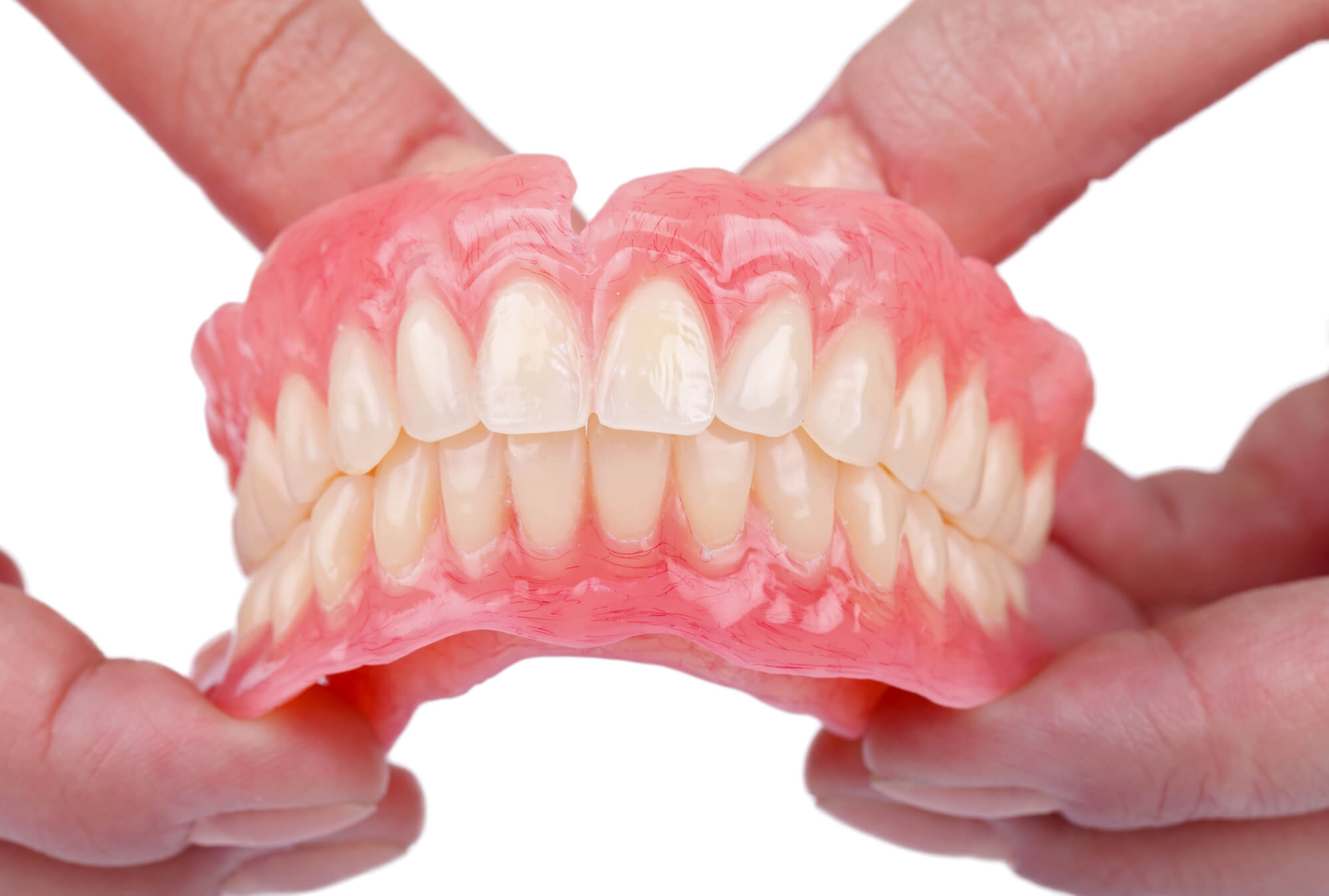Missing teeth can affect not only the appearance of your smile but also your ability to chew and speak properly. If you are considering tooth replacement options, dentures may be one of the solutions you are exploring. While dentures in Pembroke Pines have been a popular choice for many people over the years, they are not always the best fit for everyone. It’s important to weigh the advantages and disadvantages of dentures and determine whether they are the right choice for you.

Understanding Dentures: What They Are and What Types You Can Get
Dentures are a type of dental prosthetic that can be used to replace missing teeth. They are designed to fit snugly over your gums and replace the missing teeth in either the upper or lower jaw, or both. There are two main types of dentures:
Full Dentures
These are used when all of your teeth are missing. They consist of a flesh-colored acrylic base that fits over your gums, and a complete set of artificial teeth that are custom-made to fit your mouth. Full dentures can be held in place by suction or with denture adhesive.
Partial Dentures
These are used when some of your teeth are missing. They consist of a metal or acrylic framework that attaches to your remaining teeth, and a set of artificial teeth that fill in the gaps. Partial dentures can be held in place with clasps or precision attachments.
It’s important to note that dentures in Pembroke Pines can improve your ability to eat and speak, as they restore the structure and function of your teeth and gums. In addition, some people may find that dentures improve their overall quality of life, as they can help restore confidence and self-esteem by providing a full, natural-looking smile.
Advantages of Dentures
Cost-effective
Dentures are a great option for those who are looking for an affordable solution for missing teeth. They are often less expensive than other options for replacing missing teeth, such as dental implants or bridges. Dentures in Pembroke Pines are a great choice for those on a budget who want to improve their smile.
Non-Invasive
If you’re hesitant to undergo surgery, dentures can be a non-invasive option for tooth replacement. Unlike dental implants, which require surgery, dentures can be easily fitted without any invasive procedures.
Easy to Maintain
Dentures in Pembroke Pines can be removed and cleaned, making them easy to maintain and keep clean. You don’t need any special tools or cleaning products to keep your dentures clean. Regular brushing with a soft-bristled toothbrush and denture cleaner, as well as daily soaking in water, is usually enough to keep them in good condition.
Aesthetics
One of the main advantages of dentures is that they can be made to look like your natural teeth. This can help you feel more confident and comfortable with your smile. Dentures can be custom-made to fit your mouth, ensuring a comfortable and cohesive fit that blends seamlessly.
Customizable
Dentures can be easily modified if something goes wrong or if your mouth changes over time. If you experience any discomfort or problems with your dentures, they can be adjusted or remade to fit your changing needs. This means that you can continue to enjoy the benefits of dentures for years to come.
Immediate Results
Dentures can be fabricated and placed in a relatively short amount of time, providing you with a new set of teeth and a full smile sooner. The process usually starts with an initial consultation and oral exam, followed by taking impressions of your mouth to create custom dentures that fit your mouth perfectly.
Once the dentures are made, they can be placed and adjusted to ensure a comfortable fit. This means that you can have a new set of teeth in just a few weeks, allowing you to regain your confidence and enjoy your favorite foods again.

Disadvantages of Dentures
May Slip or Shift
While dentures can be secured with adhesives, they can still shift or slip while eating or speaking, which can be uncomfortable and embarrassing. This can be especially true for lower dentures, which are more prone to movement due to the shape of the jawbone. This can make it difficult to eat certain foods, and may require adjustments to the dentures to improve their fit.
Sometimes Dentures Cause Soreness
It can take some time to get used to wearing dentures, and they may cause soreness or irritation in the mouth, especially in the first few weeks of use. This is because the pressure of the dentures on the gums and surrounding tissues can cause friction and irritation. However, this should improve as your mouth becomes accustomed to the dentures.
May Affect Taste
Some people report a change in their ability to taste certain foods when wearing dentures. This is because the dentures can cover the roof of the mouth, which contains taste buds. However, this is generally a minor issue and should not be a major concern.
Dentures Require Adhesives
Dentures may require the use of adhesives to keep them in place, which can be messy or inconvenient. Adhesives can also be costly over time, and some people may be allergic to the ingredients in certain adhesives.
They Need Adjustments
Dentures may require adjustments or replacement over time due to natural changes in the mouth, such as bone loss and shifting of the remaining teeth. If the dentures become loose or ill-fitting, they can cause discomfort, difficulty speaking, and difficulty eating.
This can lead to the need for frequent adjustments or replacement of the dentures to ensure a proper fit and function. However, regular dental check-ups can help identify any issues with the dentures and address them before they become more serious problems.
Speech Difficulties
Speech difficulties can be a potential downside of wearing dentures. Some people may find that they have difficulty speaking clearly or enunciating certain words or sounds when they first start using dentures. This can be due to the dentures feeling bulky or uncomfortable in the mouth, or because the tongue and mouth muscles need to adjust to the new prosthetic device.
Over time, most people adapt to speaking with dentures and improve their ability to communicate clearly, but it may take some practice and patience to get used to speaking with them.
Determining If Dentures Are for You
After reviewing the advantages and disadvantages of dentures, you may still be wondering if dentures are the right option for you. To help you make an informed decision, here are seven questions to consider and discuss with your dentist or prosthodontist.
How Many Teeth Are You Missing?
1-2 Missing Teeth: Dentures may not be necessary for only one or two missing teeth. Other options such as a bridge or implant may be recommended by your dentist.
3-5 Missing Teeth: Partial dentures may be an option for replacing several missing teeth.
More Than 5 Missing Teeth: Full dentures may be recommended for extensive tooth loss.
Are You Able to Maintain a Daily Dental Routine?
Yes: Dentures require daily cleaning and care. If you are willing and able to maintain a daily dental routine, dentures may be a good option for you.
No: If you have difficulty maintaining a daily dental routine, dentures may not be the best choice. Your dentist can recommend other options for tooth replacement.
How Do You Feel About Removable Teeth?
Comfortable: If you are comfortable with the idea of removable teeth, dentures may be a good option for you.
Uncomfortable: If you do not want removable teeth, other options such as dental implants may be a better choice.
What Is Your Budget for Tooth Replacement?
Limited: Dentures are a cost-effective option for replacing missing teeth.
Higher Budget: If you have a higher budget for tooth replacement, other options such as dental implants may be recommended by your dentist.
Do You Have a Sensitive Gag Reflex?
Dentures can trigger some patients’ gag reflexes. Therefore, patients with extremely sensitive gag reflexes may struggle to get comfortable with their new prosthetics. However, prolonged wear can help patients desensitize themselves to their new dentures.
Do You Have a History of Bruxism (Teeth Grinding) or Clenching?
If you have a history of bruxism or clenching, you may be at higher risk of damaging your dentures. Your dentist may recommend a special type of denture to help protect against damage or suggest treatments for bruxism or clenching to minimize the risk.
Do You Have Any Allergies to Materials Commonly Used in Dentures?
Your dentist can discuss alternative materials or treatments to help minimize the risk of an allergic reaction. It’s important to disclose any allergies or sensitivities to your dentist before getting dentures.

Ready to Get Dentures in Pembroke Pines?
If you’re considering dentures as a tooth replacement option, schedule a consultation with our dental team at Dental America Group. We can help you determine the best solution for your specific needs and guide you through the process. Contact us today to schedule an appointment.

